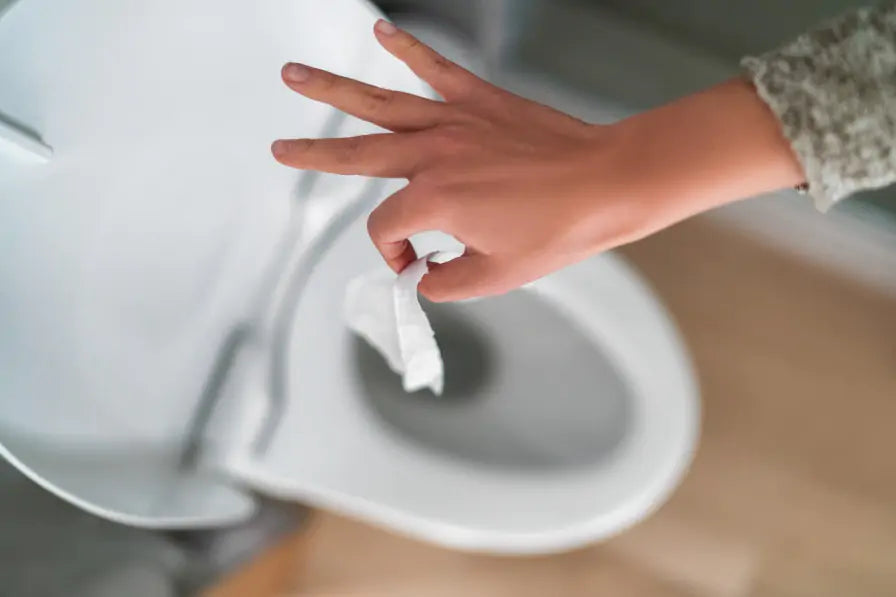OR
Express Checkout

Wet wipes that have been flushed down the toilet made up a huge 77% of the waste that was picked up during a charity litter pick on the banks of the River Thames. A staggering 4000 wipes were picked up along 400 metres of river bank. The Marine Conservation Society (MCS) and the environmental group Thames21 carried out litter-picks on 100-metre stretches of the banks of the Thames near Hammersmith four times last year.
The groups are keen to emphasise that wet wipes should never be flushed down the toilet, even if manufacturers claim they are flushable. Wipes that are flushed down the toilet can end flowing through sewer pipes and into rivers, and eventually, the sea.
As well as wet wipes, volunteers who carried out the litter picks found 200 small pieces of plastic, 60 sanitary towels, 100 large pieces of plastic, and 60 pieces of fabric, mostly from clothing.
Wet wipes take centuries to break down
A spokesperson for the MCS said that many people think it’s more hygienic to flush wipes away than to put them in the bin, but it’s very harmful to the environment. Wet wipes contain plastic and take hundreds of years to break down. When they do break down, they break down into tiny microplastic pieces that are almost impossible to clean up. A spokeswoman for Thames21 said that this was not just a London problem, it happens all across the country.

The problem with wet wipes
Okay, they’re convenient, but wet wipes have become one of the fastest growing causes of pollution on our beaches, according to the MCS. We use a lot of wipes now, from baby wipes, to face wipes, antibacterial wipes, and toilet wipes, and they’re seriously causing problems in our sewers. Water companies are continuously reporting that wet wipes are the cause of sewer blockages because they absorb the oil and grease that people discard down their sinks. As well as this, wet wipes are made from plastics, wood pulp, and cotton, and they take an age to break down.
So what should we do with wet wipes, should we put them in landfill? Well, that’s not a great solution either, given that most of them contain alcohol, cleaning agents, and artificial fragrances that can seep into groundwater.
What about alternatives to wet wipes?
Thames Water offers an alternative to wet wipes, a foaming gel that can be applied to toilet roll for cleansing purposes and that’s completely fine to flush away. Maybe we should relax our hygiene obsession a little bit, what’s wrong with plain old soap and water?